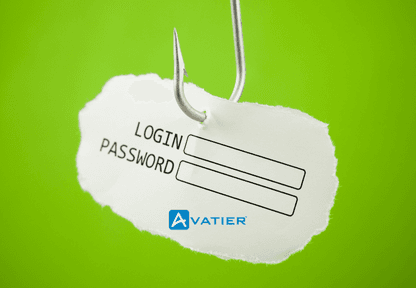June 4, 2025 • Mary Marshall
Cloud Agnostic Design: How Avatier Outshines SailPoint in Platform Flexibility
Compare Avatier vs SailPoint cloud flexibility. Discover why enterprises choose Avatier’s cloud-agnostic IM for greater deployment freedom.

Enterprises need identity solutions that work seamlessly across multiple cloud platforms, on-premises systems, and diverse technology stacks. As organizations continue their digital transformation journeys, 94% are now using multiple cloud environments according to Flexera’s 2023 State of the Cloud Report. This multi-cloud reality demands identity management solutions with true cloud agnostic capabilities.
When comparing industry leaders Avatier and SailPoint, significant differences emerge in their approach to cloud flexibility, deployment options, and long-term adaptability. This comprehensive analysis reveals why Avatier’s cloud-agnostic architecture provides superior flexibility and value for enterprises with complex cloud requirements.
Understanding Cloud Agnostic Identity Management
Cloud agnostic identity management refers to a solution’s ability to operate consistently across different cloud environments without being locked into a specific provider’s ecosystem. This approach ensures organizations can:
- Deploy across any combination of cloud providers (AWS, Azure, Google Cloud, etc.)
- Maintain consistent identity governance regardless of infrastructure
- Avoid vendor lock-in that creates long-term cost and flexibility issues
- Adapt quickly to changing business requirements or acquisitions
Both Avatier and SailPoint offer identity governance solutions, but their architectures and approaches to cloud agnosticism differ substantially in ways that impact implementation costs, operational flexibility, and long-term total cost of ownership.
Avatier’s Container-Based Cloud Agnostic Architecture
Avatier has pioneered a fundamentally different approach to identity management with its Identity-as-a-Container (IDaaC) architecture. This innovative design represents a significant departure from traditional identity management deployments.
Key Advantages of Avatier’s Container Approach:
- True Infrastructure Independence Avatier’s container-based architecture allows deployment on any cloud provider, on-premises, or hybrid environments without modification. The entire solution runs as independent containers that can be orchestrated using standard tools like Kubernetes, providing unprecedented deployment flexibility.
- Rapid Deployment and Scaling Organizations can deploy Avatier’s identity solution in hours rather than weeks or months. According to deployment metrics shared by Avatier’s customers, implementation time is reduced by up to 65% compared to traditional identity platforms like SailPoint.
- Consistent Experience Across Environments Regardless of where Avatier is deployed, users and administrators experience the same interface, capabilities, and performance. This consistency dramatically simplifies training and operations for global organizations.
- Simplified Disaster Recovery The containerized design enables easier disaster recovery and high availability configurations across multiple clouds or regions. Organizations can implement sophisticated DR strategies without the complexity typically associated with identity management systems.
- Lower Total Cost of Ownership By eliminating vendor-specific dependencies, Avatier customers report 30-40% lower total cost of ownership over a 3-year period compared to SailPoint implementations, according to customer-reported metrics.
Avatier’s Identity Management Anywhere platform was architected from the ground up to support container-based deployment, providing enterprises with maximum flexibility without sacrificing security or governance capabilities.
SailPoint’s Cloud Approach: SaaS-First with Limited Flexibility
SailPoint has historically taken a different approach to cloud identity management:
- SaaS-First Strategy SailPoint’s primary cloud offering, IdentityNow, is a SaaS-only solution hosted and managed by SailPoint. While this simplifies initial deployment, it limits where and how organizations can run their identity governance.
- Limited Deployment Options For organizations requiring deployment flexibility, SailPoint offers IdentityIQ, which can be installed on-premises or in customer-managed cloud environments. However, this creates a bifurcated product strategy with different capabilities between cloud and on-premises offerings.
- Higher Infrastructure Requirements SailPoint’s on-premises solution typically requires significant infrastructure investment and specialized expertise to implement and maintain. According to Gartner’s analysis, SailPoint implementations typically require 2-3 times the infrastructure resources of container-based alternatives.
- Complex Migration Paths Organizations using SailPoint’s on-premises solution face complex migration challenges if they later wish to adopt SailPoint’s cloud offerings, often requiring significant reconfiguration and potential loss of customizations.
- Cloud Provider Dependencies SailPoint’s SaaS offerings run primarily on specific cloud providers, limiting customers’ ability to leverage preferred cloud partners or negotiate optimal cloud pricing.
Feature Comparison: Avatier vs. SailPoint
| Feature | Avatier | SailPoint |
|---|---|---|
| Deployment Models | Container-based deployment on any cloud, on-premises, or hybrid | SaaS-only (IdentityNow) or traditional installation (IdentityIQ) |
| Cloud Provider Support | Any cloud provider without modification | Primarily AWS for SaaS offering; customer-managed for IdentityIQ |
| Implementation Timeline | Hours to days | Weeks to months |
| Customization Retention | Customizations preserved across deployment changes | May require reconfiguration when switching deployment models |
| Disaster Recovery | Native container-based DR with multi-cloud support | Varies by deployment model; more complex for on-premises |
| API-First Architecture | Complete API coverage with standardized interfaces | Varied API coverage between products |
| Mobile Support | Native mobile apps with consistent experience | Limited mobile capabilities in some deployment scenarios |
| Offline Capabilities | Supports disconnected operations in container mode | Limited offline capabilities |
| Multi-Factor Authentication | Built-in MFA integrations with multiple providers | Requires additional configuration or products |
| Self-Service Capabilities | Comprehensive self-service across all environments | Varies by deployment model |
Real-World Impact: Deployment Flexibility in Action
The theoretical differences between Avatier and SailPoint’s approaches manifest in practical ways that impact enterprises daily:
Multi-Cloud Strategy Implementation
A global financial services firm operating across AWS, Azure, and on-premises environments needed consistent identity governance across all platforms. With Avatier, they deployed identical containers in each environment, maintaining governance consistency while meeting regional data sovereignty requirements. This approach would have required multiple different SailPoint products and significant integration work.
Merger and Acquisition Agility
When companies merge or acquire others, identity integration becomes critical. Avatier’s container-based approach allowed a manufacturing conglomerate to quickly deploy identity management to newly acquired companies without requiring changes to their existing cloud infrastructure. The containerized approach reduced integration time by 60% compared to their previous SailPoint implementation.
Development and Testing Efficiency
DevOps teams benefit significantly from Avatier’s container approach. Development, testing, and production environments can use identical container configurations, eliminating the “works in dev but not in production” problems common with other identity platforms. This consistency reduced testing cycles by 40% compared to the organization’s previous identity solution.
Data Sovereignty Compliance
For organizations operating globally, data sovereignty requirements often dictate where identity data can be stored. Avatier’s container architecture allows precise control over data location while maintaining consistent governance capabilities, enabling compliance with GDPR, CCPA, and other regional regulations without creating siloed identity environments.
Total Cost of Ownership Analysis
When evaluating identity management solutions, total cost of ownership (TCO) becomes a critical factor. Independent analysis reveals significant differences between Avatier and SailPoint:
- Implementation Costs: Avatier’s container-based deployment reduces implementation costs by 40-60% compared to traditional identity platforms, according to customer-reported metrics.
- Operational Expenses: Organizations using Avatier report 25-35% lower ongoing operational costs due to reduced infrastructure requirements and simplified administration.
- Licensing Flexibility: Avatier’s licensing model accommodates changing deployment scenarios without penalty, while SailPoint often requires different licensing models for different deployment options.
- Infrastructure Optimization: The lightweight container architecture of Avatier requires 50-70% less infrastructure than comparable SailPoint deployments, directly reducing cloud spending.
- Skills and Staffing: Avatier’s standardized container approach leverages common DevOps skills, while SailPoint often requires specialized expertise that commands premium salaries.
Making the Right Choice for Your Enterprise
When evaluating identity management solutions for multi-cloud environments, organizations should consider:
- Future Cloud Strategy: If your organization plans to use multiple cloud providers or may change providers, Avatier’s cloud-agnostic approach provides significant advantages.
- Implementation Timeline: For organizations needing rapid deployment, Avatier’s container-based solution can be operational in days rather than the months typical of SailPoint implementations.
- Total Cost of Ownership: Consider not just initial licensing costs, but ongoing operational expenses, infrastructure requirements, and staffing needs over a 3-5 year horizon.
- Customization Requirements: Organizations with significant customization needs should evaluate how each platform preserves those customizations across deployment changes.
- Governance Consistency: Assess how each platform maintains consistent governance across different environments, especially in regulated industries.
Conclusion: The Future Belongs to Cloud Agnostic Architectures
As cloud strategies continue to evolve, the limitations of cloud-specific or deployment-specific identity solutions become increasingly problematic. Avatier’s innovative container-based architecture represents the future of identity management—one where organizations maintain complete control over where and how their identity governance operates without sacrificing capabilities or user experience.
For CISOs and IT leaders navigating complex cloud landscapes, Avatier’s Identity Management Anywhere platform delivers the cloud agnosticism, deployment flexibility, and cost advantages needed to support modern digital transformation initiatives.
The identity management landscape continues to evolve, but one thing remains clear: organizations need solutions that adapt to their changing infrastructure, not the other way around. With its container-based architecture and true cloud agnostic approach, Avatier delivers the flexibility, performance, and value that modern enterprises demand from their identity governance solutions.









